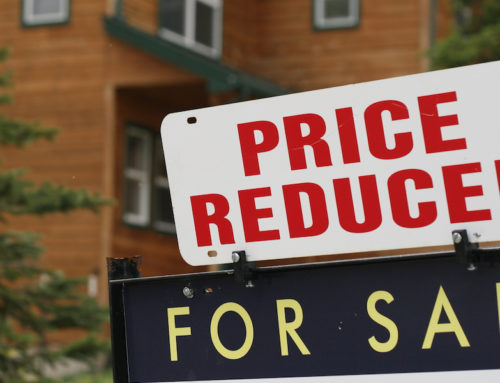These days, condominiums are an affordable alternative to purchasing a single-family home. As real estate prices continue to rise in many Canadian markets, purchasing a lower-priced condo makes for an attractive choice to those pursuing home ownership (perhaps, even for the first time). But buying a condo comes with its fair share of complexities just as single-family home ownership does! We’re sure you’ve heard all the stories – bidding wars, condo fees, closing costs, maintenance fees – there’s an awful lot to wrap your head around.
However, we strongly believe that when it comes to real estate, knowledge really is power. If you’re prepared and armed with insider know-how, you’ll enter the condo market a few giant leaps ahead.
First things first: know where your money is going. When you buy a condominium unit, you:
- Buy a share of the property’s common elements
- Are responsible for a portion of the common expenses
- Have the right to examine the condo corporation’s records
Understanding these condominium-specific facts enables you to better shop for the condo property that best fits your needs:
- Tour the condominium property to see all it has to offer. It’s never a bad idea to see it more than once – don’t be afraid to be a return viewer.
- Ask whether the unit you want to buy includes title to a parking spot, storage locker, and other assets outside the unit (you might need to rent or purchase these additionally).
- Do you own a pet? Many condos place limits on the number of pets and their size.
- If you want to pay less in maintenance fees, look for condominiums with fewer amenities, like recreation areas, virtual golf or highly landscaped grounds.
- Consider your total cost of living. A condominium that includes amenities, like a pool and gym, for instance, can cost you less overall than if you were to take out a membership at a fitness centre outside the condominium and pay common element fees.
- Review the condominium corporation’s status certificate for important information about the financial health of the corporation you’re buying into.
Financing your condo
Buying a condo is different than buying a traditional single-family home for a number of reasons. Whether you’re purchasing a pre-construction condo or a resale condo, here are some terms that are important to understand:
- Debt Service Ratio: Lenders calculate your costs versus income to determine your mortgage qualification. Your Gross Debt Service ratio (mortgage principal and interest + property taxes + heat + 50% of your condo fees) divided by your pre-tax income, should be 35 per cent or less. Lenders look at your Total Debt Service ratio (GDS + car payments + alimony + other loans + the remaining 50% of your condo fees) divided by your pre-tax income. This should be 42 per cent or less.
- Condo Fees – Your monthly condo fees can vary widely, depending on the age and condition of the building, and the amenities housed within it. The condo fees paid are divided into three expense categories: utilities, common areas and the reserve fund.
- Mortgage Default Insurance – This insurance is required when buying a property with less than a 20-per-cent down payment. A common misconception is that this insurance policy is for the protection of the borrower. In fact, mortgage default insurance protects the lender in case the borrower defaults on his or her payments.
How much do I have to pay before moving into my condo?
Financing your condo is normally divided in two phases: a down payment, which is the deposit made before taking possession, and a mortgage, which covers the remaining balance. The amount of the down payment is normally between five and 20 per cent of the total cost of the condo. You’ll be required to make a deposit when you sign the preliminary contract; additional payments will also be required before you take possession of your condo. If your down payment is less than 20 per cent of the total cost of your condo, you must obtain mortgage default insurance from Canadian Mortgage and Housing Corp. The cost of this insurance is usually added to the mortgage amount, but the nine-per-cent tax payment on the insurance must be deposited directly at your bank upon taking possession of the condo.
What fees will I need to pay when I take possession of my condo?
Before you can get the keys to your new condo, you’ll need to consult a lawyer. Their time will incur a fee, usually called a notary fee. They will take care ensuring the contract is legal and binding, and act in your best interest if they see anything that needs your attention. Make sure you ask what your chosen lawyer charges for their home purchase notary. In addition to the notary fees, you’ll have to make a contribution to the condo’s working capital fund (usually between $150 and $300) and start paying your pro rata share of the condo fees. These fees will be broken down for you on the adjustment sheet you receive two months before you take possession of your condo.
It’s also important to remember that you will have to pay a “welcome tax” or land transfer tax in the months following your date of occupancy. There’s a provincial tax that applies to all properties purchased in Canada, and in some cities, there is also a regional tax. This tax varies depending on the cost of the condo: a $200,000 condo, for example, will have a welcome or land transfer tax of $1,750. If you’re a first-time buyer in Ontario or British Columbia, you’ll get a sizeable rebate on your land transfer tax (up to a set amount depending on the province). You’ll also have to pay your pro rata share of the municipal and school taxes for the current year. Basically, you’re investing in the new community you’re moving into – not just the property.
You can find mortgage calculators online that will help you determine your mortgage payment and even allow you to visualize your amortization schedule. A good calculator also lets you test out multiple down payment scenarios and calculate your Canada Mortgage and Housing Corporation (CMHC) insurance and land transfer tax.
You should also be aware that since February 15, 2016, condo buyers have had to abide by new minimum down payment rules. Where previously condo buyers could have a down payment minimum of five-per-cent for condos under $1 million, the new rules require a minimum 10-per-cent down payment for condos over $500,000 – but only on the portion of the price that’s more than $500,000.
We know that buying a condo is one of the most important real estate decisions and investments you’ll ever make. That’s why we want you to feel confident with the ins and outs of buying and financing a condo. It’s our job at RE/MAX to make sure you are.









